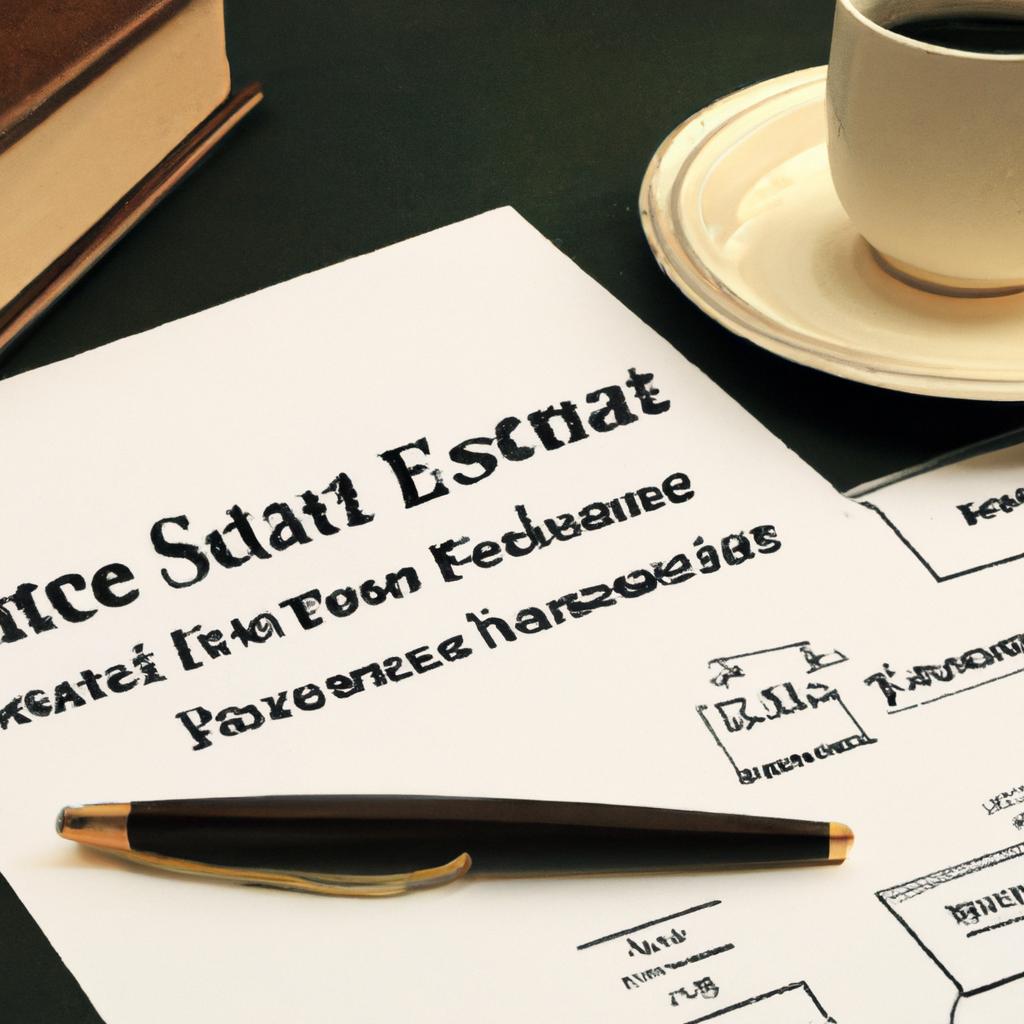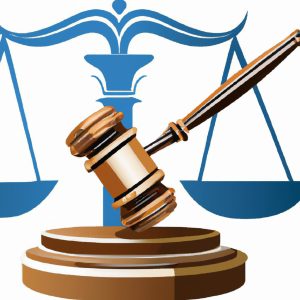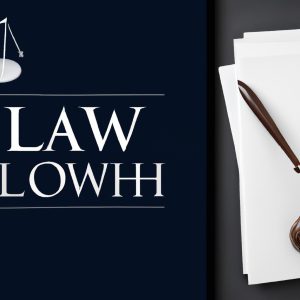In the intricate dance of estate planning, the decision to establish a will or trust can often feel like a daunting task. As seasoned legal practitioners at Morgan Legal Group in the heart of New York City, we understand the importance of thoughtful estate planning to ensure the seamless transfer of assets and protection of loved ones. In this article, we delve into the nuances of wills and trusts, offering insight and guidance to demystify these essential instruments of wealth management and preservation.
Understanding the Importance of Creating a Comprehensive Estate Plan
Creating a comprehensive estate plan is essential for safeguarding your assets and ensuring that your final wishes are carried out. Without a proper plan in place, your loved ones may face unnecessary stress, confusion, and financial burdens in the event of your passing. By establishing wills and trusts, you can protect your assets, minimize taxes, and provide for your family’s future.
When crafting an estate plan, it is crucial to consider various factors, such as asset distribution, guardianship of minor children, and healthcare directives. By working with experienced attorneys like the professionals at Morgan Legal Group, you can create a tailored plan that meets your specific needs and objectives. Our team can assist you in drafting legally sound documents, establishing trusts, and navigating complex probate processes, ensuring that your estate is managed efficiently and effectively.

Key Differences Between Wills and Trusts: Choosing the Right Option for Your Needs
When it comes to estate planning, understanding the key differences between wills and trusts is crucial in determining the right option for your needs. While both serve as essential tools in managing your assets and distributing them according to your wishes, they each have distinct advantages and limitations to consider.
<p>One of the main differences between wills and trusts is how they operate during your lifetime and after your passing. A will only takes effect upon your death, outlining your wishes for asset distribution and naming guardians for minor children. In contrast, a trust can be created during your lifetime and allows you to transfer assets into the trust for management and distribution by a designated trustee. This can help avoid probate, maintain privacy, and provide flexibility in managing your assets both during your lifetime and after your death.</p>
Avoiding Common Pitfalls in Estate Planning: Tips for a Smooth and Secure Transition
When it comes to estate planning, one of the most crucial aspects to consider is the creation of wills and trusts. Wills outline how your assets will be distributed after your passing, while trusts ensure that your assets are managed and distributed according to your wishes. However, there are common pitfalls that individuals often overlook when creating these documents. By avoiding these pitfalls, you can ensure a smooth and secure transition for your loved ones.
- Failure to update documents: One of the biggest mistakes people make is failing to update their wills and trusts regularly. Life circumstances change, and it is important to make sure that your documents reflect your current wishes and assets.
- Not appointing a reliable executor or trustee: Choosing the right executor for your will or trustee for your trust is crucial. Make sure to select someone who is trustworthy, responsible, and capable of handling the responsibilities that come with these roles.

Maximizing the Benefits of Trusts for Asset Protection and Tax Efficiency
When it comes to estate planning, utilizing trusts can be a powerful tool for both asset protection and tax efficiency. Trusts allow individuals to transfer assets to beneficiaries outside of the probate process, ensuring a smooth transfer of wealth while avoiding costly delays. By setting up a trust, individuals can also designate how and when their assets will be distributed, providing flexibility in asset management.
One key benefit of utilizing trusts for asset protection is that assets held in a trust are typically shielded from creditors, protecting them from potential lawsuits or bankruptcy proceedings. Additionally, trusts can also provide tax advantages by reducing estate taxes upon the transfer of assets to beneficiaries. By working with an experienced estate planning attorney, individuals can maximize the benefits of trusts to protect their assets and ensure tax efficiency for future generations.
Q&A
Q: What is a will and why is it important?
A: A will is a legal document that outlines how a person’s assets should be distributed upon their death. It is important because it ensures that your wishes are carried out and can help prevent disagreements among family members.
Q: What is a trust and how does it differ from a will?
A: A trust is a legal arrangement where a trustee holds and manages assets on behalf of beneficiaries. Unlike a will, a trust can be used to distribute assets during a person’s lifetime and after their death, and can offer more flexibility in terms of managing and protecting assets.
Q: Who should consider creating a will or trust?
A: Anyone who wants to ensure that their assets are distributed according to their wishes, minimize taxes and fees, and provide for their loved ones should consider creating a will or trust.
Q: What are some common misconceptions about wills and trusts?
A: One common misconception is that only wealthy individuals need to create wills and trusts. In reality, anyone who owns assets can benefit from having a plan in place for distributing them. Another misconception is that creating a will or trust is a one-time task; in reality, it is important to review and update these documents periodically to reflect changes in circumstances or laws.
Q: How can someone get started with creating a will or trust?
A: To get started, an individual can consult with an estate planning attorney to discuss their goals and create a plan that meets their needs. They can also consider using online tools or resources to create a basic will, although it is recommended to consult with a professional to ensure that all legal requirements are met.
In Conclusion
As you begin the process of creating your will and trusts, remember that planning for the future is not just about paperwork and legalities. It’s about ensuring that your legacy continues on in the way you see fit, providing for your loved ones and safeguarding your hard-earned assets. By taking these steps now, you are taking control of your destiny and leaving a lasting impact on the lives of those you hold dear. So, embrace the journey ahead and rest easy knowing that you have taken the necessary steps to secure a brighter future for yourself and your loved ones. Cheers to a future full of peace of mind and prosperity!
 Wills & Trusts: Everything You Need to Know
Wills & Trusts: Everything You Need to Know
When it comes to estate planning, two words are often mentioned: wills and trusts. While they may seem similar, they serve different purposes and are essential components of a comprehensive estate plan. In this article, we will dive deeper into wills and trusts, discussing their definitions, differences, benefits, and practical tips for choosing the right one for your estate planning needs.
What are Wills and Trusts?
A will is a legal document that outlines a person’s wishes regarding the distribution of their assets after their death. It also appoints an executor, a person responsible for carrying out the instructions in the will. Wills are typically drafted by a lawyer and need to be signed and witnessed to be considered valid.
On the other hand, a trust is a legal arrangement where a trustee holds and manages assets on behalf of a beneficiary. In creating a trust, the person (known as the grantor or settlor) transfers their assets into the trust, which is then managed and distributed according to the instructions outlined in the trust document.
Differences between Wills and Trusts
The main difference between wills and trusts is when they take effect. A will only becomes effective after a person’s death, while a trust can take effect during a person’s lifetime (known as a living trust) or after their death (known as a testamentary trust). Additionally, wills are subject to probate, which is a court-supervised process of settling a person’s estate, while trusts generally avoid probate.
Another significant difference is the level of control over assets. A will can only dictate what happens to assets after a person’s death, while a trust allows for more flexibility during a person’s lifetime. For example, a trust can be set up to distribute assets to beneficiaries gradually, providing a level of protection and management over the assets. A will, however, will distribute the entire estate at one time.
Benefits of Wills
Wills offer several benefits that make them essential in estate planning. Here are some of the key advantages of having a will:
1. Distribution of Assets on Your Terms
With a will, you have control over how your assets will be distributed after your death. This allows you to ensure that your loved ones receive their fair share and that specific assets go to the desired beneficiaries.
2. Choice of Executor
In a will, you can appoint an executor, which is a person responsible for managing and distributing your assets after your death. This role is vital as the executor is responsible for carrying out your wishes and ensuring that your loved ones are taken care of. Choosing an executor you trust is crucial as they will handle your estate’s financial and legal obligations.
3. Providing for Minor Children
A will can ensure that minor children are taken care of after your passing. You can assign a guardian for your children and make provisions for their financial support through a trust.
4. Protecting Heirs and Assets
A will can also include provisions to protect your heirs’ interests and assets, such as setting up a trust for beneficiaries with special needs or for those who may not be able to manage their inheritance responsibly.
Benefits of Trusts
Trusts also offer numerous benefits that make them a valuable tool in estate planning. Here are some of the key advantages of having a trust:
1. Avoid Probate
As mentioned earlier, trusts generally avoid probate, which can be time-consuming and costly. This allows for a faster distribution of assets to beneficiaries without the court’s involvement.
2. Privacy
Probate proceedings are public, which means that anyone can access the information about your estate. Trusts offer privacy, as they do not have to go through the probate process, and the details of the trust remain confidential.
3. Flexibility and Control over Assets
Trusts offer more flexibility than wills, allowing for better control over how assets are managed and distributed. You can dictate when and how assets are to be distributed to beneficiaries, and even the purposes for which they can be used.
4. Protection from Creditors and Lawsuits
Assets held in a trust are typically protected from creditors and lawsuits. This is especially useful for high net worth individuals looking to protect their assets for future generations.
Practical Tips for Choosing Between Wills and Trusts
Now that we understand the differences and benefits of wills and trusts, here are some practical tips for choosing between the two:
1. Consider Your Goals and Family Dynamics
Think about your personal and family goals and how your assets can best serve those goals. For example, if you have minor children or beneficiaries with special needs, a trust may offer better protection and management over their inheritance.
2. Consult with an Attorney
Estate planning is not a one-size-fits-all process, and it is essential to seek professional advice to determine the best plan for your unique situation. A lawyer can help you understand the advantages and disadvantages of wills and trusts and help you make an informed decision.
3. Consider Your Assets and Future Plans
Your assets, both present, and future, can also play a role in determining whether a will or a trust is the better option. If you have significant assets or plan to acquire more in the future, a trust may be a more suitable option for effective management and protection.
4. Regularly Review and Update Your Plan
Estate planning is not a one-time event but an ongoing process. It is crucial to review and update your will or trust periodically, especially when there are significant changes in your life, such as the birth of a child, marriage, divorce, or acquiring new assets.
In Conclusion
Wills and trusts are essential components of a comprehensive estate plan, and understanding their differences and benefits is crucial in determining the right fit for your estate planning needs. Whether you choose a will or a trust, consulting with an attorney and regularly reviewing your plan can ensure that your wishes are carried out and your loved ones are taken care of after your passing.












